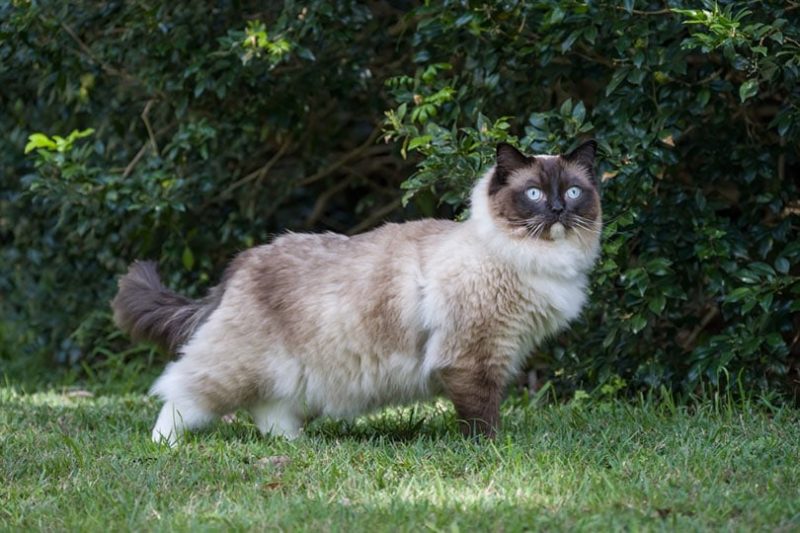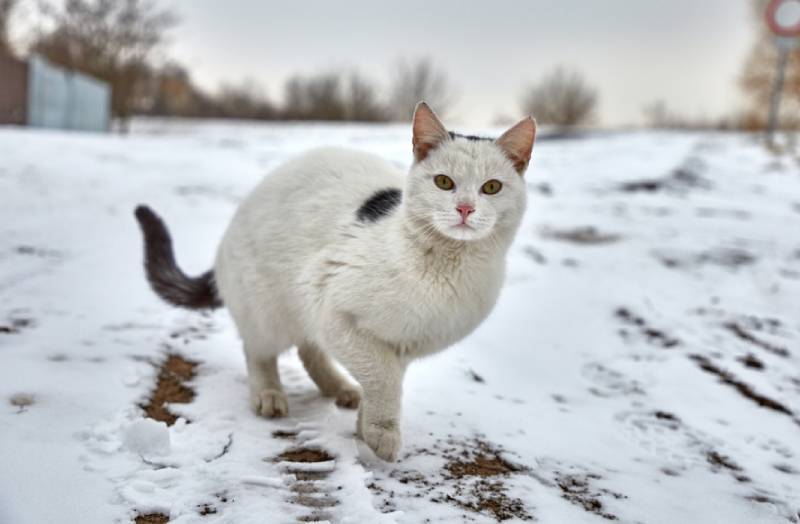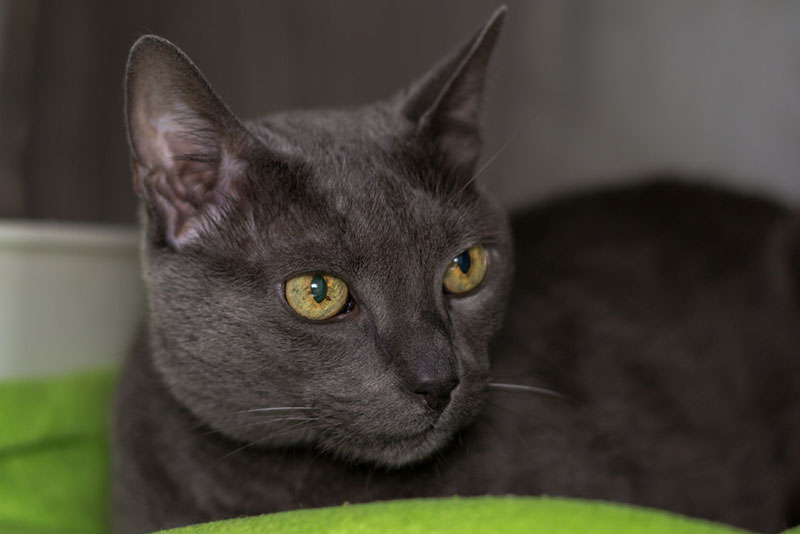Can Cats Eat Roast Beef? Vet-Approved Facts & FAQ

Updated on
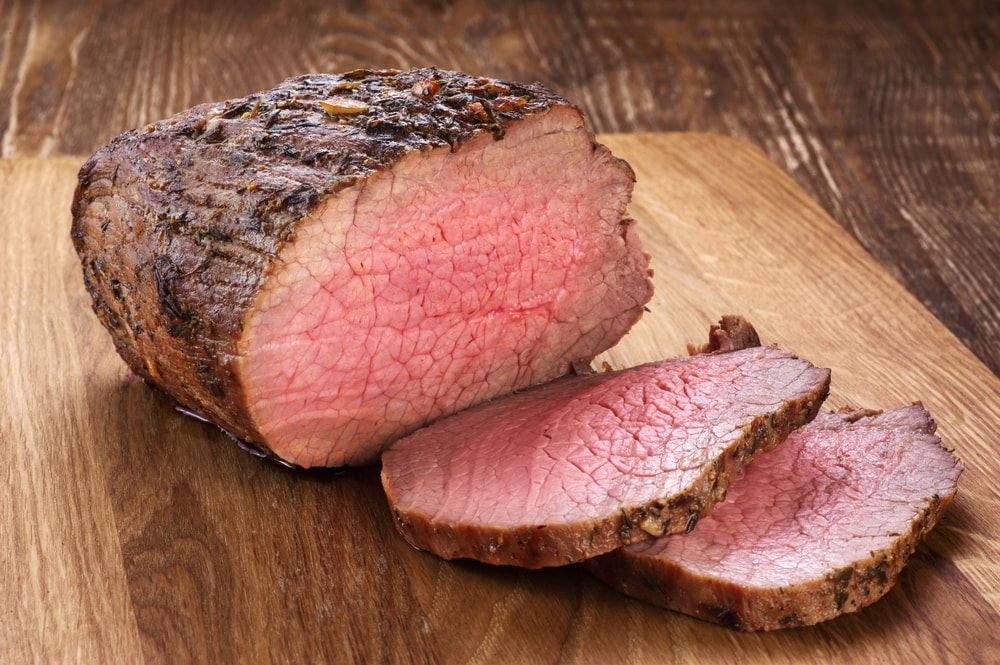
It can be difficult to resist the urge to offer some of your meal to your pets, but not all human foods are safe. Fortunately, cats are obligate carnivores and love meat, so a small piece of your chicken or beef may be fine as an occasional treat.
But can cats have roast beef? This one is tricky because the beef itself is safe for cats, but how it’s prepared may not be. Here’s what you need to know about sharing your roast beef with your cat.
Is Roast Beef Good for Cats?
Cats are obligate carnivores, so small pieces of meat on occasion can be a healthy treat. If cats don’t eat enough meat, they can develop serious health problems. Of course, your cat should get all the nutrition they need—including adequate animal-based protein—from a complete and balanced diet specifically designed for cats.
- Protein: Cats have a higher requirement for protein than other species like dogs and humans. Cats need this in the form of high quality and highly digestible animal protein.
- Taurine: This amino acid is essential for cats and only found in animal sources. Taurine can be synthesized in humans and dogs but not in cats. If they don’t get enough meat, they can’t supplement the necessary taurine and develop conditions like dilated cardiomyopathy, a heart condition that prevents their heart from pumping blood and supplying oxygen to the body.
- Arginine: Arginine is another amino acid that cats can’t produce naturally, so they need to get it from their diet. Without arginine, ammonia builds up in the body and leads to lethargy, drooling, vomiting, and convulsions.
Roast beef provides these necessary nutrients, but there are some precautions to take.
Risks of Roast Beef for Cats
With roast beef, the beef itself is fine for cats. Roasting is also a healthier method of preparing meat compared to frying or sauteing. The problems come from what may be added to the roast beef, however.
Whether you make it yourself or purchase it, most roast beef is not just beef. It usually has seasonings, sauces, and spices like onions or garlic, which are toxic to cats. Roast beef can also be made with cooking wine, salt, and other ingredients that can make your cat sick.
If you want to make roast beef to share a little with your cat, it’s important to prepare it without any seasonings or spices. But even still, there are parts of the roast beef your cat shouldn’t eat—namely the fat trim or any bones.
Excess fat can upset your cat’s stomach and cause diarrhea and vomiting. In more serious cases, it can trigger pancreatitis, a serious and painful inflammation of the pancreas.
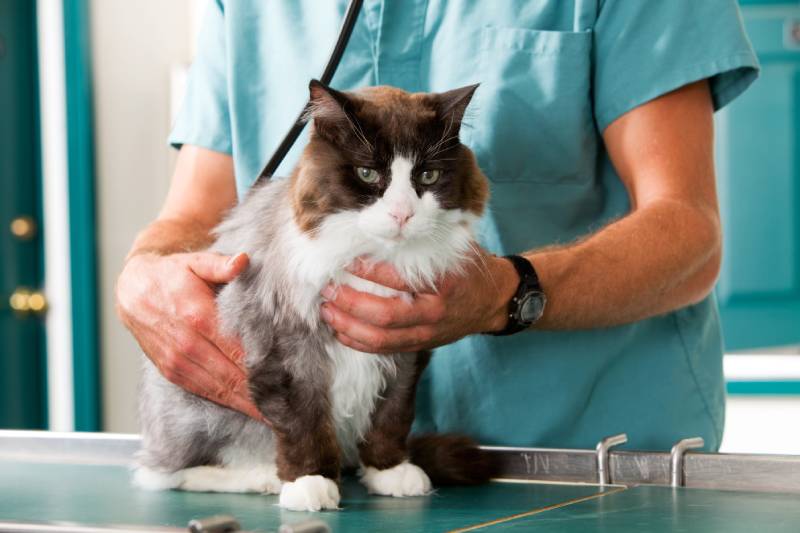
If the roast beef has bone fragments, they could cause your cat to break a tooth or cause a blockage in the gut, which requires emergency—and often expensive—surgery. Bone fragments can also injure the mouth or gastrointestinal tract.
You should also make sure the roast beef is fully cooked. It may seem like cats can handle raw meat like their wild counterparts, but the American Veterinary Medical Association discourages feeding raw or undercooked foods as they may increase the risk of foodborne illnesses.
In short, any roast beef you offer your cat should be plain, free of seasonings or sauces, and without fat trimming or bones. This can be a safe occasional treat but be mindful not to feed too much. Even though it’s mostly healthy, your cat’s treats should only make up about 10% of their total diet. Otherwise, you risk upsetting their nutritional balance. Always consult your vet if you have questions about your cat’s diet.
What to Do If Your Cat Eats Roast Beef
If your cat manages to gorge themselves on some roast beef, it’s not necessarily cause for panic. If the roast beef contains toxic ingredients like garlic or onion, it’s best to contact your vet and get their recommendation.
- Pale gums
- Lethargy
- Rapid heart rate
- Rapid breathing
- Weakness
- Severe stomach upset
- Collapse
- Low body temperature
- Excessive thirst and urination
These signs can indicate an emergency and require immediate veterinary attention.
Conclusion
Plain, cooked roast beef can be a healthy occasional treat for your cat, but it’s important to take precautions. While it’s a nice treat, feeding too much roast beef can disrupt your cat’s balanced diet. It’s always best to check with your vet before adding new foods to your cat’s diet to make sure they are suitable for your pet. You also run the risk of spoiling your cat and encouraging picky eating, so be sure to feed roast beef and other treats sparingly.
Featured Image Credit: vitals, Shutterstock



